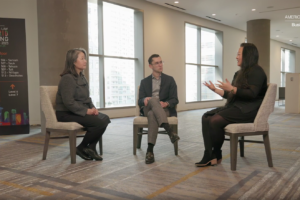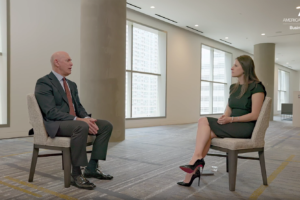CURRENT MONTH (August 2023)
SEC Chief Accountant Warns Accountants About Crypto Assurance Liability
By Thomas W. White, Retired Partner, WilmerHale
Regulators continue to express concerns about companies in the crypto asset space, particularly crypto asset trading platforms, that market to investors their retention of third parties to provide “assurance” regarding certain aspects of their work. In March, the Public Company Accounting Oversight Board’s Office of the Investor Advocate issued an advisory cautioning crypto asset investors against relying on so-called “proof of reserve reports.” (See our note on this advisory.) The Securities and Exchange Commission (SEC) staff issued a similar investor alert.
In late July, SEC Chief Accountant Paul Munter issued a follow-on statement aimed at accounting firms that may perform such assurance work. Munter first noted that suggestions by clients that such “alternative, non-audit arrangements are at a parity with, or even more ‘precise’ than, a financial statement audit” are “false.” He stated that “[n]on-audit arrangements are neither as rigorous nor as comprehensive as a financial statement audit, and may not provide any reasonable assurance to investors.” Munter then warned accounting firms about “several obligations and hazards” of performing work in this space.
- Potential Liability for Antifraud Violations: Munter noted that an accounting firm can be liable under the antifraud laws for material misstatements that the firm or its clients make about the scope of work performed or the nature of the procedures followed. He suggested that where a firm becomes aware that a client has made misleading public statements about the nature of the firm’s non-audit work, the firm should consider a noisy withdrawal or other actions. He also recommended that accounting firms consider the firm’s risks and responsibilities during its client acceptance procedures and suggested precautions the firm might take.
- Auditor Independence: Munter observed that accounting firms sometimes accepted limited, non-audit consultation arrangements with newer market entrants that may consider a public offering in the near term. He emphasized that the firm would have to consider the impact of such non-audit engagements on its ability to meet applicable auditor independence requirements when the market participant seeks to register with the SEC.
- SEC Rule of Practice 102(e): Munter reminded accounting firms that a violation of federal securities laws or applicable independence requirements could result under Rule 102(e) in the censure or suspension of the firm, or its accountants, from appearing and practicing before the Commission.










